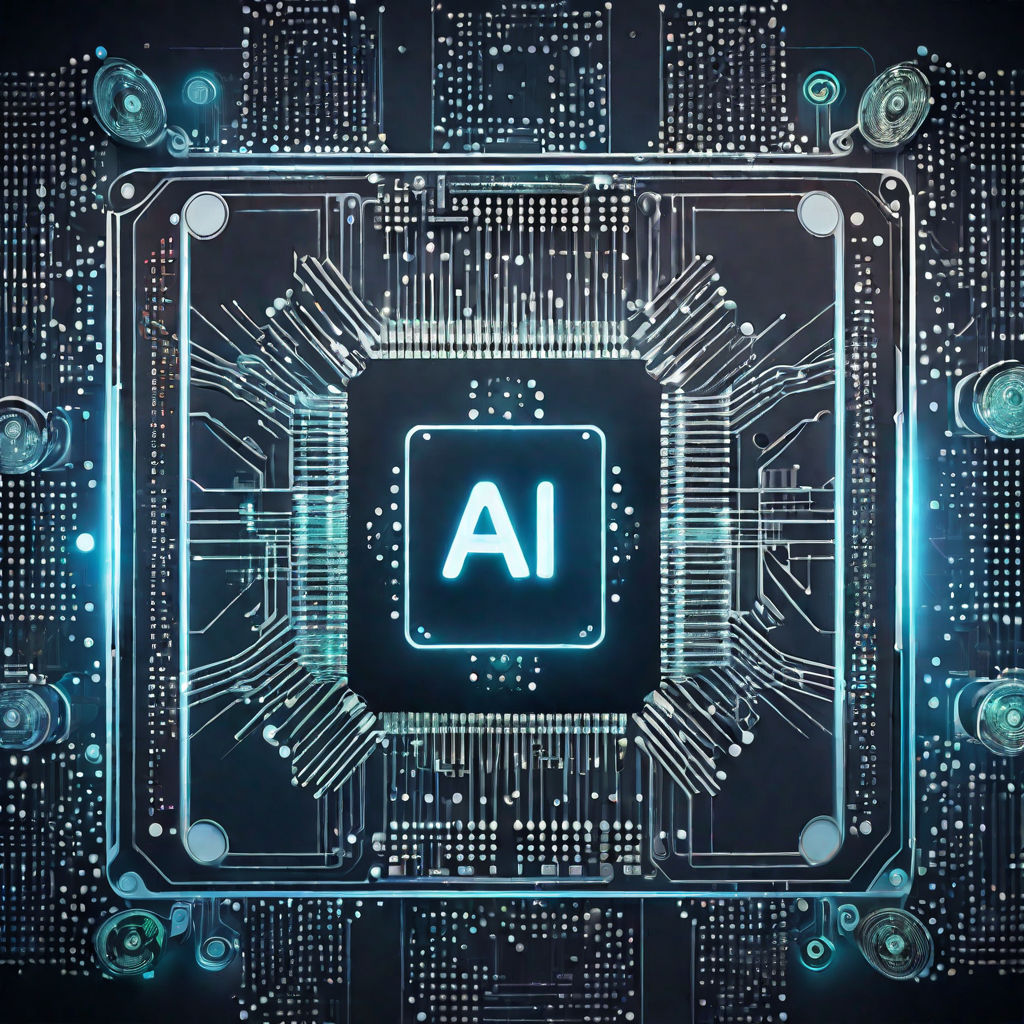AI chips are design to computing hardware crucial for the development and deployment of artificial intelligence systems. With the rapidly increasing adaptation of AI, there is a growing demand for higher processing cpu power, speed, and efficiency in computers. There play a important role in meeting these requirements effectively.
What is an AI Chip?
AI chip is widely classifies various chips it can handle the complex communication demands with AI algorithms. This category includes like GPUs, FPGAs and application specific integrated circuits (ASICs). While central processing units (CPUs) it can handle only basic AI tasks, there utility decreasing as the industry progresses..
Table of Contents
How Do AI Chip Work?

In general, a chip, also known as a microchip, it is refers to an integrated circuit unit manufactured at a microscopic scale using semiconductor material. It contains components like transistors, which are tiny switches controlling electrical current flow within a circuit, It is enabling computing functions such as memory and logic.
chip mainly operate on the logic side, managing the extensive data processing requirements of AI workloads. Unlike general purpose chips like CPUs, AI chip incorporate a large number of faster, smaller, and more efficient transistors. This design allows them to execute more computations power per unit of energy, so result we get it faster processing speeds and lower energy consumption.
AI chip is capable unique capabilities that mostly accelerate computations required by AI algorithms, including parallel processing. This feature enables them to perform multiple calculations simultaneously, crucial for handling complex AI tasks efficiently.
Due to their design, Chip are particularly effective for AI workloads and training AI models, as highlighted by Hanna Dohmen, a research analyst at Georgetown University’s Center for Security and Emerging Technology (CSET).
When it comes to AI chip, there are three primary types to consider, each with its unique hardware and functionality.
GPUs
Originally designed for high graphics performance tasks such as gaming and video rendering, GPUs are commonly used in AI model training. This general purpose chips excel in parallel processing, making them ideal for the computationally intensive nature of AI model training. Many companies take multiple GPUs to train AI systems concurrently.
FPGAs
FPGAs stand out for their ability to be reprogrammed “on the fly,” making them highly adaptable and specialized for various tasks. They are particularly efficient in image and video processing applications. The flexibility of FPGAs allows for dynamic optimization based on changing requirements.
ASICs
ASICs, or accelerator chips, are purpose built for specific functions, including artificial intelligence. While similar to FPGAs in computing ability, ASICs are not reprogrammable. However, there optimized circuitry for a particular task often delivers superior performance compared to general purpose processors or other. Google tensor processing unit (TPU) is a notable example of an ASIC tailored to enhance machine learning performance.
AI in Mobile Phones
Adding AI chips to mobile phones is a trend among phone makers like Huawei and Apple. This technology boosts phone performance, speed, and battery life. More companies will likely follow suit soon. AI chips improve features like facial recognition and help save energy, making phones more convenient and secure for users.
AI Chip Uses?
Specialized chip play a critical role in enabling modern artificial intelligence. Here are some of the key applications where they are being utilized.
Its play a main role in accelerating the training AI, machine learning, and deep learning algorithms, especially in the development of large language models (LLMs).
Taking advantages of parallel processing and optimizing operations for neural networks, Its enhance the performance of LLMs, so that’s why improving generative AI tools like chatbots, AI assistants, and text generators.
Edge AI, made possible by AI chip, enables AI processing on various smart devices such as watches, cameras, and kitchen appliances. This process allows data processing closer to the data source, reducing latency, enhancing security, and improving energy efficiency. Its find applications in diverse domains, ranging from smart homes to smart cities.
In the real time of autonomous vehicles, Its play a main role in advancing there intelligence and safety. They process and interpret extensive data from vehicle cameras, LiDAR, and other sensors, facilitating tasks like image recognition. With their parallel processing capabilities, Chip enable real time decision making, aiding autonomous vehicles in navigating complex environments, detecting obstacles, and responding to various traffic conditions.
Additionally advantages to various machine learning and computer vision tasks in robotics, enabling robots to recognize and respond to there environments more effectively.
From cobots harvesting crops to humanoid robots offering companionship, chip enhance the capabilities of robots across diverse applications.
Why Are AI Chip Better Than Regular Chip?
AI chip offer several advantages over regular chips in the artificial intelligence development and deployment, owing to there unique design characteristics.
- Parallel Processing Capabilities: AI chip excel in parallel processing, enabling them to execute multiple calculations simultaneously. Unlike general purpose chips like CPUs, which rely on sequential processing, AI chip divide complex problems into smaller tasks and solve them concurrently. This leads to faster and more efficient processing of large datasets and complex algorithms.
- Energy Efficiency: Designed to be more energy efficient than conventional chips, AI chip integrate techniques such as low precision mathematical to reduce energy consumption. There proficiency in parallel processing allows for the distribution of workloads in a more efficient manner, resulting in minimized energy usage. This energy efficiency is crucial for reducing the carbon footprint of the artificial intelligence industry, especially in data centers and edge AI devices.
- Accuracy in Results: AI chip are specifically tailored for artificial intelligence tasks such as image recognition and natural language processing, enabling them to deliver more accurate results compared to regular chips. There precision in executing calculations reduces the errors, making them suitable for high stakes AI applications like medical imaging.
- Customization: Unlike general purpose chips, certain AI chip like FPGAs and ASICs can be customized to meet the specific requirements of AI models and applications. This customization includes fine tuning parameters and optimizing the chip’s architecture for different AI workloads. The flexibility offered by customizable AI chip allows developers to tailor the hardware according to their unique needs, accommodating variations in algorithms, data types, and computational requirements.
In summary, AI chip outperform regular chips in artificial intelligence tasks due to there parallel processing capabilities, energy efficiency, accuracy in results, and customization options, AI development and deployment. Check this NVIDIA AI chip
For other AI tools explore this power full article 10 best AI tools Anime ai art generator and other AI tools visit AItrendytech
